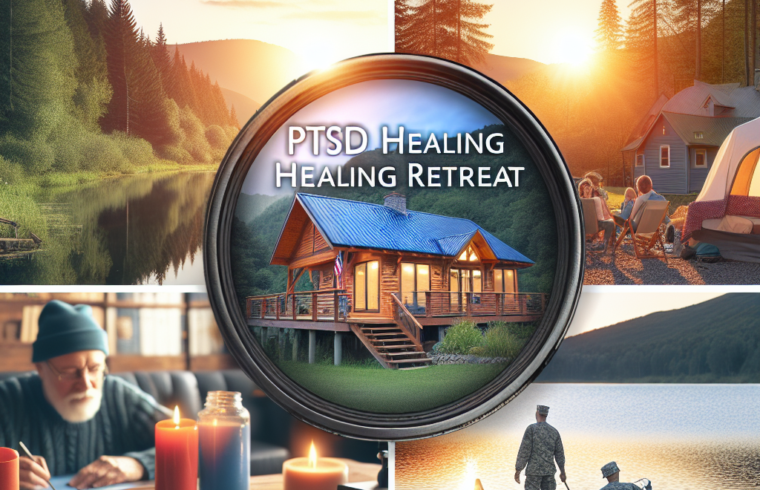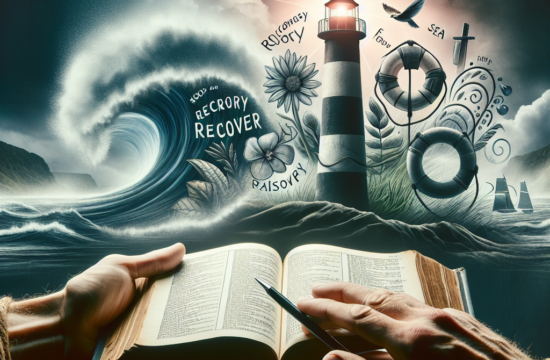==> Thank you for reading this post! Click Here If you are looking for support and Victory over PTSD.
Understanding PTSD and Its Impact on Veterans
The Nature of PTSD
PTSD, or Post-Traumatic Stress Disorder, is a condition that arises after someone experiences or witnesses a traumatic event. For many veterans, this could be combat-related experiences that are tough to shake off. As I’ve seen in discussions and personal stories, the feelings of anxiety, flashbacks, and a deep sense of isolation are all too real. They can feel like they’re stuck in that painful moment in time, completely out of control.
At its core, PTSD isn’t just about having a bad memory; it can affect every aspect of life. For me, it highlighted the need for compassionate healing. Understanding what our veterans go through is crucial for anyone looking at the effectiveness of healing retreats.
Engaging with veterans often unearths some heart-wrenching tales. I remember listening to a friend share their experience; it wasn’t just about the battle scars but the emotional aftermath that lingered long after returning home. Acknowledgment and normalizing these feelings is the first step toward healing.
How PTSD Affects Daily Life
Living with PTSD can skew even the simplest of tasks. I’ve personally watched friends miss gatherings, shy away from loud noises, or become anxious in crowded places. It’s heartbreaking. What’s crucial is understanding that these patterns are cries for help, an indication that something deeper needs to be addressed.
Sometimes veterans become socially withdrawn. They might feel they won’t be understood, leading them to retreat further into isolation. I always thought of this as a call for connection. Creating a safe space is necessary for veterans to open up about their struggles.
Relearning how to cope with everyday life can require significant emotional work. Families and friends need to be allies in this journey. Simple steps like being there for them—listening, engaging, and just being present—can mean a world of difference.
Normalizing the Conversation around PTSD
The best way to support veterans is by encouraging openness about PTSD. Discussions around mental health should not carry the stigma they often do. I remember a retreat session focused on storytelling—just by sharing their journeys, veterans felt a weight lift off their shoulders.
Creating safe environments where these conversations can happen organically is vital. Having veterans share their stories can foster understanding not only among them but also with family and friends. It builds bridges of support that can be incredibly beneficial.
Let’s face it, some may worry about being judged or misunderstood. It’s on us to create an inclusive culture, ensuring that every story shared is met with empathy. That’s an essential part of healing and growth.
The Role of Healing Retreats
Creating a Safe Haven
Retreats offer a sanctuary where veterans can escape the noise of the everyday world and concentrate on healing. I’ve personally seen the magic that happens when veterans are placed in a non-judgmental space. It enables them to relax and let their guard down.
During one retreat I attended, the immediate sense of camaraderie among participants was touching. They could relate to each other in ways outsiders simply couldn’t. Sharing meals, stories, and experiences creates a bond that lays the groundwork for deep healing.
A safe haven is not just about physical space; it’s about emotional security. Being surrounded by people who understand and empathize can encourage veterans to confront painful memories and emotions rather than avoid them.
Structured Programs that Foster Healing
If you’re curious about how these retreats generally function, they often incorporate structured programs designed specifically for veterans. From meditation to group therapy sessions, there’s a bit of everything. I’ve seen how personalized approaches can have profound effects, helping veterans develop coping strategies they can carry home with them.
In one noteworthy experience, a group focused on mindfulness. They learned how to breathe through moments of anxiety. To see veterans slowly embrace these coping techniques was inspirational. It highlighted the potential for emotional regulation and self-awareness.
Moreover, these structured activities aren’t just busy work; they provide exploration points for deeper conversations amongst participants. They stimulate discussions that ultimately lead to breakthroughs in recognizing and processing trauma.
Building Lifelong Connections
The connections forged at retreats often last well beyond the event itself. In my experience, friendships can become lifelines. I’ve seen veterans maintain contact and support each other long after the retreat is over, creating a network of resilience.
Get Support and Help with Recovery! Visit us for more Information and Support
When veterans are able to connect, they share tips, strategies, and resources. It becomes a powerful community aspect. This camaraderie not just supports mental health but also fuels a sense of belonging, something many veterans crave.
Having a support system that understands the nuances of PTSD can make the journey to recovery less lonely. It’s a comforting thought to know that no veteran has to navigate their struggles alone.
Implementing Healing Strategies into Daily Life
The Importance of Routine
Once I’ve seen the transformative power of retreats, a big takeaway was the value of implementing routines. Practicing mindfulness, regular exercise, or journaling are practical skills veterans can incorporate into daily life. They help to alleviate symptoms and create stability.
As someone whose life has been enriched by the routines I established from retreats, I can authentically say they bring clarity and peace. Even simple things like morning walks or guided meditation can create a significant impact.
Encouraging veterans to find what works best for them is essential. Personalization of these routines can turn them into powerful healing tools, making the transition back to civilian life smoother and more manageable.
Utilizing Support Networks
Another critical element is staying connected to the support networks established during retreats. For many veterans, this means leaning on family or engaging in community programs that endeavor to support mental wellness.
I firmly believe ongoing dialogue about mental health should be encouraged post-retreat. Regular check-ins with peers or counselors can help veterans maintain their emotional health while providing outlets for discussion—keeping the healing alive.
It’s like having a safety net—they know support is just a call away. This sense of connection can foster resilience and help veterans confront challenges without feeling isolated.
Continuing the Healing Journey
Ultimately, healing is an ongoing journey rather than a destination. Veterans should embrace the idea that while retreats can be transformative, the ongoing work also matters. Empowering them with tools to seek help when needed can make the road smoother.
In my personal journey, I learned that seeking additional resources—whether that be therapy or alternative healing practices—can broaden the avenues for growth. It’s about what feels right and beneficial for each individual.
Encouraging self-compassion and patience throughout this process can remind veterans that they’re not alone in their struggles. They have an entire community ready to stand by their side.
FAQs
1. What is PTSD, and how does it affect veterans?
PTSD is a mental health condition that arises after a traumatic event. It often leads to anxiety, flashbacks, and emotional distress, affecting everyday life significantly for veterans.
2. How do healing retreats help veterans?
Healing retreats provide safe spaces for veterans to share experiences, learn coping strategies, and create supportive connections with others who understand their struggles.
3. What kinds of activities are typically involved in these retreats?
Activities usually include mindfulness practices, group therapy, storytelling, and various wellness workshops designed to promote healing and self-discovery.
4. How can veterans maintain the support they find in retreats?
Veterans should stay connected with peers and continue participating in support networks or community programs to keep the healing process ongoing after the retreat.
5. Why is routine important for PTSD recovery?
Establishing a routine can bring structure and predictability to daily life, helping reduce anxiety and providing a sense of stability, which is crucial for recovery.













